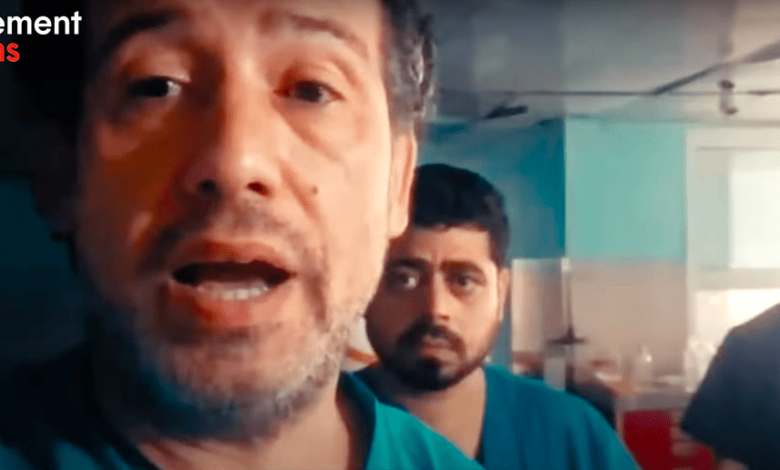BBC Insiders Accuse Broadcaster of Being PR for Israel

In a significant move, over 100 BBC employees have voiced their concerns regarding the broadcaster’s coverage of the ongoing Gaza conflict, accusing it of acting as a public relations tool for Israel.
Over 100 BBC Insiders Accuse Broadcaster of Being a “PR for Israel”
More than 100 BBC employees have written to director general Tim Davie to express their concerns about the corporation acting as a mouthpiece for Israel.
Open Letter Highlights Crisis Over Gaza Coverage
The open letter, signed by an additional 300 media professionals, including Miriam Margolyes, Charles Dance, and Mike Leigh, signifies a growing crisis surrounding the BBC’s coverage of the war in Gaza. This follows significant backlash over the BBC’s decision to platform Glastonbury Festival act Bob Vylan, a punk band that chanted “death to the IDF” during a live iPlayer stream.
Concerns About Editorial Standards
The letter criticized the BBC for its perceived inability to accurately reflect the realities in Gaza, stating that its reporting “falls short” of editorial standards. “All too often it has felt that the BBC has been performing PR for the Israeli government and military. This should be a cause of great shame and concern for everyone at the BBC,” the letter asserted.
Claims of Censorship
The BBC acknowledged the importance of robust discussions among editorial teams and reiterated its commitment to impartial coverage of the conflict.
Censorship Allegations by Content Creators
Addressed to Davie and the BBC board, the letter claimed that content creators at the BBC have faced censorship in the name of impartiality. It stated that some insiders were accused of having an agenda for posting critical news articles about the Israeli government on their social media.
Documentary Controversy
Signatories criticized the BBC’s decision to drop the documentary Gaza: Doctors Under Attack, despite it being approved for broadcast by senior editorial policy figures. The BBC explained that the film had not completed the final pre-broadcast sign-off processes and could create a perception of partiality.
Political Decisions and Fear of Criticism
The letter argued that this decision appeared political and did not reflect the journalism in the film. It illustrated the fears many insiders have experienced regarding the organization’s reluctance to appear critical of the Israeli government.
See More ...
Concerns Over BBC Board Member
The letter also raised issues regarding Robbie Gibb’s position on the BBC board due to his connections with the Jewish Chronicle, which the letter claimed has published “anti-Palestinian and often racist content.” It alleged that the BBC board, including Gibb, influenced the decision not to air Gaza: Doctors Under Attack.
BBC’s Stance on Editorial Discussions
A BBC spokesperson stated: “Robust discussions amongst our editorial teams about our journalism are an essential part of the editorial process. We have ongoing discussions about coverage and listen to feedback from staff, and we believe these conversations are best had internally.”
Regarding their Gaza coverage, the BBC affirmed its commitment to impartiality, highlighting its production of impactful coverage from the region, including award-winning documentaries like Life and Death in Gaza and Gaza 101.
Other notable signatories of the letter included Juliet Stevenson, Zawe Ashton, and Aiysha Hart.




